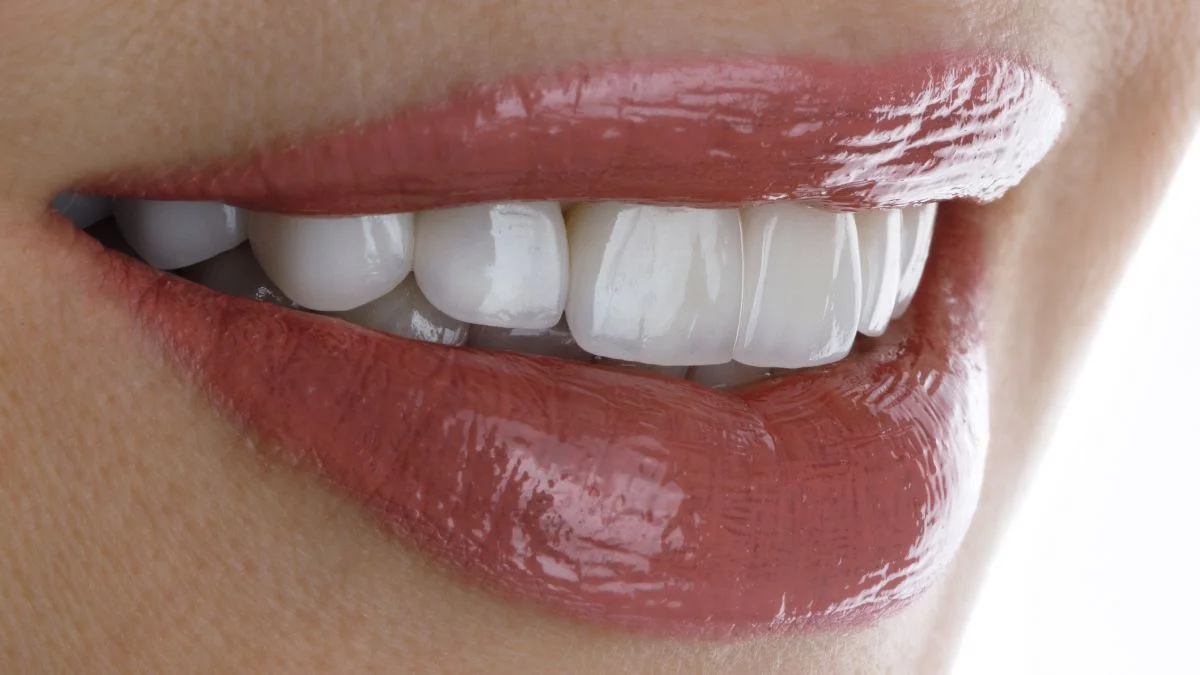Have you ever wondered how to achieve a stunning smile without extensive dental work?
Understanding the different types of veneers can help you make an informed decision about enhancing your teeth’s appearance.
In this article, we’ll explore the various types of veneers and how to choose the right one for you, making your journey to a brighter smile easier.
What Are Dental Veneers?
Dental veneers are thin shells of porcelain or composite resin that are custom-made to fit over the front surface of teeth. They are used to improve the appearance of teeth and correct various cosmetic issues. Here are some veneers benefits you should know:
Improved Appearance
Covering flaws like discoloration, chips, or gaps in your teeth with dental veneers can make your smile look much better. They can make a surface that is even and looks natural, so it fits with the smile you want. A lot of people choose veneers to make their teeth look whiter and better without having to go through a lot of treatments. Veneers can make you look better, which can boost your confidence in social and work situations. This increase in self-esteem can make many areas of life better.
Natural Look
It is one of the best things about dental veneers that they can look like real teeth. Either ceramic or composite plastic can be used, and it can be made to match the color and clarity of your natural teeth. This makes sure that the veneers fit in with your smile so well that they are almost impossible to see. Also, because veneers are custom-made, they can be shaped and fitted perfectly. This attention to detail helps create a more natural look that many people want when they want to improve the way their teeth look.
Durability
Dental veneers are known for their strength and longevity. Porcelain veneers can last between 10 to 15 years with proper care and maintenance. Composite resin veneers typically have a shorter lifespan, ranging from 5 to 7 years, but can still be quite durable when looked after.
To extend the life of your veneers, it’s important to practice good oral hygiene and avoid habits that can lead to damage, such as biting hard objects. Regular dental check-ups can also help maintain their condition and ensure that they continue to look their best.
Minimal Tooth Alteration
One of the appealing aspects of dental veneers is that they require minimal alteration of the natural tooth structure. In most cases, only a small amount of enamel needs to be removed to accommodate the veneer, preserving the majority of the tooth. This conservative approach helps maintain the tooth’s integrity while allowing for significant aesthetic improvements.
As a result, patients often experience less sensitivity and quicker recovery times compared to more invasive procedures. This makes dental veneers an attractive option for those looking to enhance their smile without extensive dental modifications.
Quick Results
One of the advantages of dental veneers is that they provide quick results for individuals seeking an improved smile. The process of applying veneers typically requires only a few visits to the dentist, allowing patients to see significant changes in a short period. After the initial consultation and fitting, the final veneers can be placed quickly, enabling a fast transformation.
Patients appreciate the efficiency of this procedure since it allows them to achieve their desired look without long waiting times. This quick turnaround can be especially appealing for those preparing for special events or looking to boost their confidence sooner rather than later.
What Are the Types of Dental Veneers?
Dental veneers come in several types, each with its own advantages and characteristics. Here are the main types:
Porcelain Veneers
Porcelain veneers are one of the most popular options for dental enhancements. They are made from a strong ceramic material that closely resembles the look and feel of natural teeth. These veneers are custom-made to fit each patient’s unique dental structure, ensuring a perfect fit and a natural appearance.
Custom porcelain veneers usually involves an initial consultation, preparation of the teeth, and a fitting session. The final result is a beautiful and long-lasting smile.
Composite Resin Veneers
Composite resin veneers are another option for individuals looking to enhance their smile. These veneers are made from a tooth-colored resin material that is applied directly to the teeth. They can be shaped and polished in a single visit, making them a convenient choice for some patients.
While they are typically less expensive than porcelain veneers, composite resin veneers may not last as long and are more prone to staining. Regular maintenance and touch-ups may be required to keep them looking their best.
Lumineers
Lumineers are a specific type of dental veneer that offers a unique approach to smile enhancement. They are ultra-thin and designed to require minimal alteration of the natural teeth. This makes Lumineers an appealing option for individuals seeking a less invasive solution while still achieving an improved appearance.
The application process for Lumineers is typically more straightforward than traditional veneers, often eliminating the need for tooth reduction. Patients can enjoy fast results and a natural look that blends well with their existing teeth.
Prepless Veneers
Prepless veneers are designed to be applied directly to the teeth without any alteration to the natural tooth structure. This means that the application process is less invasive than traditional veneers, as there is typically no enamel removal involved. Prepless veneers can be an excellent choice for individuals who desire a cosmetic enhancement without the need for tooth preparation.
These veneers allow for a quicker and easier application process, often completed in fewer visits to the dentist. Patients can achieve an improved smile while maintaining the integrity of their natural teeth.
Snap-On Veneers
Snap-on veneers are a convenient and non-invasive option for individuals seeking an enhanced smile without the commitment of traditional dental veneers. These veneers are custom-made to fit over the existing teeth and can be easily applied and removed by the user at any time. They are typically made from a durable, yet flexible material that provides a natural appearance while allowing for comfortable wear.
Many people choose snap-on veneers for special occasions or temporary use. This type of veneer is a cost-effective solution for those who want to improve their smile quickly and effortlessly.
What Are the Factors to Consider When Choosing Veneers?
When choosing dental veneers, several factors should be considered to ensure they meet your needs and expectations. Here are key factors to keep in mind:
Material
When choosing dental veneers, it’s important to think about what they’re made of. There are two main types of materials: porcelain and composite plastic. Each has its own qualities. Composite resin veneers can be formed and put on straight to the teeth in just one visit, while porcelain veneers are known for lasting a long time and not staining easily. The material you choose will depend on your personal tastes, your income, and the results you want. Talking to your doctor about these things is important to find the best choice for your needs.
Aesthetic Goals
When thinking about dental veneers, it’s important to be very clear about what you want the final look to be like. Think about what changes you want to make, like changing the color of your teeth, making sure they are straight, or fixing any flaws. Telling your dentist about these goals will help them choose the right type of veneers to help you reach your goals. Figuring out what you want the veneers to look like will also help you choose colors and make designs for them. This makes sure that the end result is as beautiful a smile as you want it to be.
Durability
When choosing dental veneers, durability is one of the most important things to think about. How long veneers last depends on what kind of material was used and how well it is taken care of. The average lifespan of porcelain veneers is 10 to 15 years, while the average lifespan of composite resin veneers is 5 to 7 years. To make your veneers last longer, it’s important to take care of your teeth and avoid habits that could damage them. Additionally, going to the dentist for regular check-ups will help your veneers last a long time.
Preparation Requirements
Getting ready for dental veneers can be different depending on the type of veneer you choose. Most of the time, some tooth preparation is needed to make room for the veneers and make sure they fit well. For standard porcelain or composite veneers, this may mean taking off a small amount of enamel from the front of the teeth. For prepless or Lumineers, teeth don’t need to be changed much, if at all, which makes the veneers procedure easier. It is important to talk to your dentist about these needs so that you know what will be needed for your case.
Cost
What kind of veneer you choose, how hard the veneers process is, and how experienced the dentist is are some of the things that affect how much dental veneers cost. Porcelain veneers usually cost more because they last longer and require more work to be made in a lab. Composite plastic veneers are often less expensive, but they may need to be fixed or replaced more often. When choosing veneers, you should think about how much money you have. Talking to your dentist about payment choices and possible financing can help make the process more affordable.
Tooth Health
Before getting dental veneers, it’s important to think about how healthy your teeth are. Before applying veneers, it is important to take care of any underlying dental problems, like gaps, gum disease, or teeth that aren’t strong enough. Making sure your lips and teeth are healthy will help the veneers stick well and improve the look of your teeth overall. A very important step is to see a dentist to check out the state of your teeth. This checkup will show if any treatments are needed to make the teeth healthier before veneers are put on.
Maintenance and Care
Maintaining dental veneers is important to make sure they last and look good. To keep both natural teeth and veneers in good shape, you should brush and floss your teeth every day as part of your daily routine. Also, you should stay away from hard foods and habits that can damage the veneers, like biting your nails or using your teeth as tools. Regular dental check-ups are also important for keeping an eye on veneers. The dentist can clean the veneers properly and fix any problems that might come up between visits before they get worse.
Longevity
People who are thinking about getting tooth veneers should think about how long they will last. If you take good care of your porcelain veneers, they should last between 10 and 15 years, giving you a long-term answer. Composite plastic veneers, on the other hand, only last about 5 to 7 years on average. Taking care of your teeth is very important if you want your veneers to last as long as possible. Getting regular dental checkups can also help your veneers stay in great shape.
Comfort
When choosing dental veneers, comfort is a key thing to keep in mind. Depending on the type of veneer picked and how well it fits, patients may feel different levels of comfort. If the veneer fits properly, it shouldn’t hurt or irritate the gums or tissues around it. It is important to let your dentist know about any worries you have about your comfort during the appointment. If there is pain after the veneers are put on, the right changes can be made.
Uncover the Ideal Veneer With This Guide to the Different Types of Veneers
In conclusion, dental veneers are a fantastic way to enhance your smile and boost your confidence. Whether you choose porcelain, composite resin, Lumineers, prepless, or snap-on options, each type of veneer offers unique benefits to suit different needs.
It’s essential to consider factors like material, durability, and tooth health when deciding on the best solution for you. By consulting with cosmetic dental services, you can uncover the ideal choice among the various types of veneers to achieve the smile you desire.
If you gained new insights from this article, be sure to explore our blog for more enlightening content.









